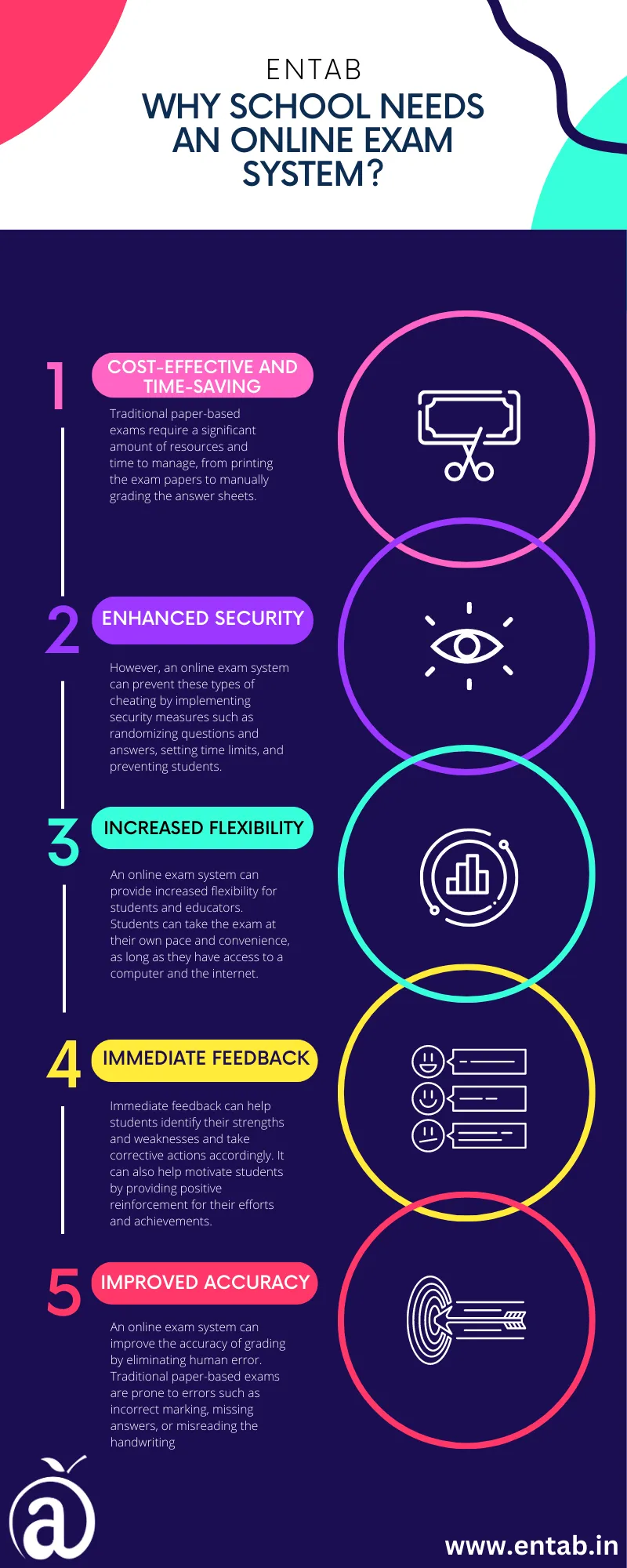
- Student Zone
-
Student Growth serves as a space for students, K-12 educators, parents and school professionals.
Introduction
In today's digital age, many schools and universities are moving away from traditional paper-based exams to online exam systems. Online exams are becoming more popular due to their convenience, flexibility, and security. An online exam system can benefit schools in various ways, such as reducing the time and cost of exam administration, improving the accuracy of grading, and providing immediate feedback to students.

In this article, we will discuss why schools need an online exam system and how it can benefit both students and educators.
Cost-Effective and Time-Saving
One of the primary benefits of an online exam system is that it is cost-effective and time-saving. Traditional paper-based exams require a significant amount of resources and time to manage, from printing the exam papers to manually grading the answer sheets. On the other hand, an online exam system eliminates these costs and saves time by automating the entire process.
With an online exam system, schools can create and manage exams online, and students can take the exam on a computer or other digital devices. This eliminates the need for printing exam papers, distributing them to different classrooms, and collecting them after the exam is over. It also eliminates the need for manual grading, reducing the time required to grade exams.
Enhanced Security
Another important benefit of an online exam system is enhanced security. Traditional paper-based exams can be vulnerable to various types of cheating, such as copying, sharing answers, or using hidden notes. However, an online exam system can prevent these types of cheating by implementing security measures such as randomizing questions and answers, setting time limits, and preventing students from accessing other websites or programs during the exam.
Online exam systems can also provide detailed audit trails, which can be used to track the entire exam process, including who accessed the exam, when it was accessed, and how long it took to complete. This can help prevent any fraudulent activities and ensure that the exam results are accurate and reliable.
Increased Flexibility
An online exam system can provide increased flexibility for students and educators. Students can take the exam at their own pace and convenience, as long as they have access to a computer and the internet. This can be especially beneficial for students who have busy schedules or need to take exams from remote locations.
Educators can also benefit from the flexibility of an online exam system. They can create and manage exams at any time and from anywhere, using a simple and user-friendly interface. This can help reduce the workload and stress of exam administration, allowing educators to focus on other important tasks such as teaching and curriculum development.
Immediate Feedback
Online exam systems can provide immediate feedback to students, which can be very beneficial for their learning and motivation. With a traditional paper-based exam, students may have to wait for several days or even weeks to receive their grades and feedback. However, with an online exam system, students can receive their grades and feedback immediately after completing the exam.
Immediate feedback can help students identify their strengths and weaknesses and take corrective actions accordingly. It can also help motivate students by providing positive reinforcement for their efforts and achievements.
Improved Accuracy
An online exam system can improve the accuracy of grading by eliminating human error. Traditional paper-based exams are prone to errors such as incorrect marking, missing answers, or misreading the handwriting. However, an online exam system can automate the grading process, ensuring that each answer is marked accurately and consistently.
Online exam systems can also provide detailed reports and analytics about the exam results, which can help educators identify patterns and trends in student performance. This can be very useful for curriculum development and instructional planning, as it provides insights into how students are learning and what areas need improvement.
Conclusion
In conclusion, an online exam system can provide many benefits to schools, including cost-effectiveness, enhanced security, flexibility, immediate feedback, and improved accuracy. It is a powerful tool that can help schools improve the quality of their exams and assessments, ultimately leading to better academic outcomes for students.
However, implementing an online exam system requires careful planning and consideration. Schools need to ensure that they have the necessary infrastructure and resources to support an online exam system, including reliable internet connectivity, sufficient computing devices, and secure data storage facilities.
Moreover, schools need to develop clear policies and procedures for administering online exams, ensuring that they are fair, transparent, and accessible to all students. They also need to provide adequate training and support to both educators and students, helping them understand how to use the online exam system effectively.
In summary, while an online exam system is not a silver bullet solution to all the challenges faced by schools, it is an essential tool that can help schools improve their exam processes and achieve better academic outcomes. By leveraging the power of technology, schools can create a more efficient, secure, and engaging exam experience for students, and provide educators with the insights and analytics they need to improve their teaching and curriculum development.